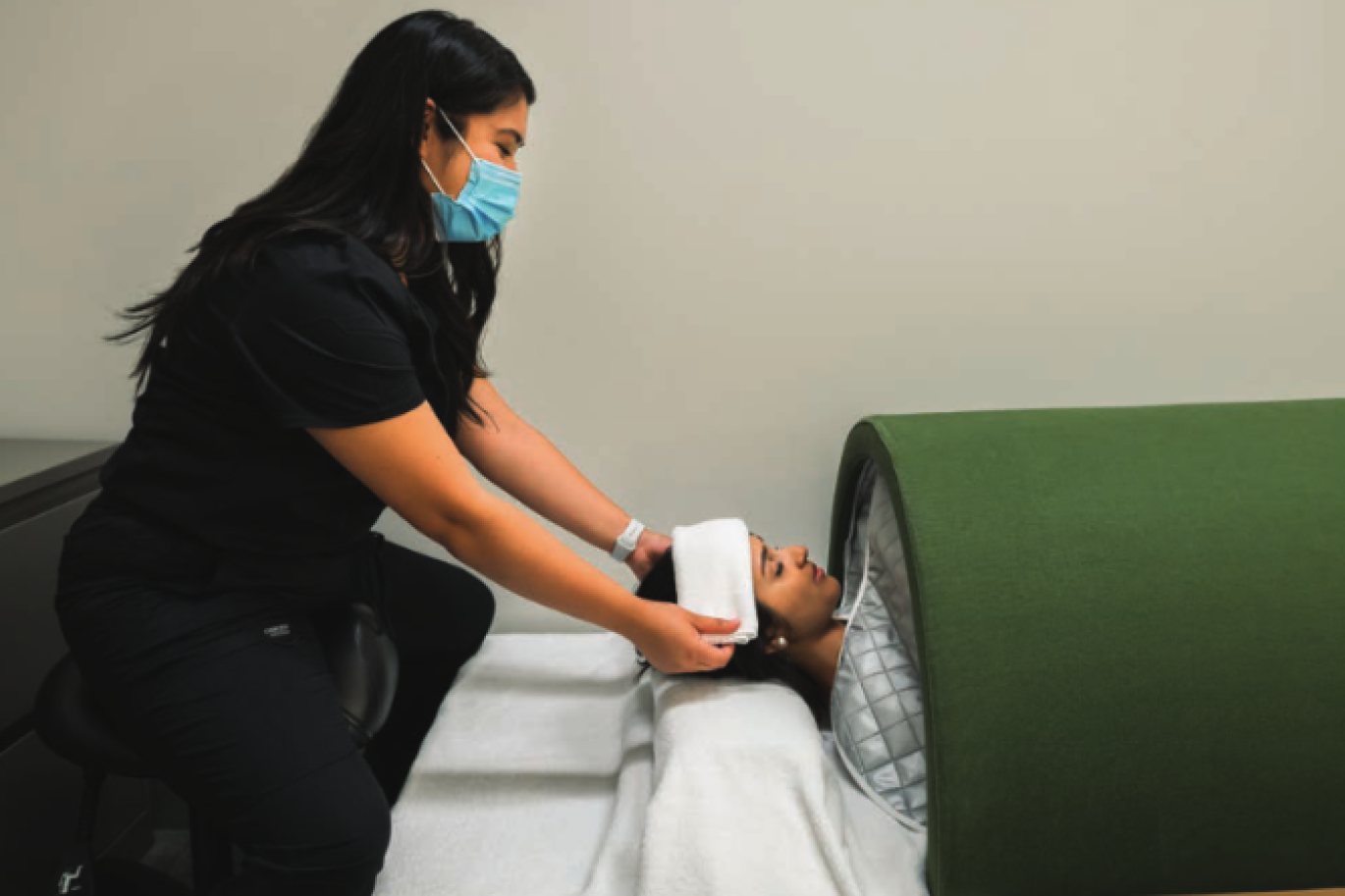Heat Therapy Shows Promise in the Treatment of Depression, Study Shows

Receiving whole-body hyperthermia, a type of body heating treatment, in addition to cognitive-behavioral therapy (CBT) may lower depressive symptoms, suggests a new trial by researchers at the UCSF Osher Center for Integrative Health.
Whole-body hyperthermia (WBH) is a treatment method that includes heating the body using an infrared sauna, and during this treatment, people sweat in an effort to cool down. Researchers hypothesize that after receiving WBH, a person’s body temperature continues to decrease, which may be a good thing, as people with depression tend to have higher body temperatures. WBH and other body heating modalities are rooted in traditional and integrative health practices, such as Finnish sauna bathing and Native American sweat lodges, which have been used across cultures for a variety of health benefits and to treat ailments.
In this single-arm trial, recently published in the International Journal of Hyperthermia, researchers recruited patients with major depressive disorder and assessed the feasibility and acceptability of the combined mind (CBT) and body (WBH) treatment. They also explored whether the treatment led to changes in depressive symptoms. Enrolled patients received eight weekly CBT sessions with a therapist, and separately completed four WBH sessions (one every other week). The WBH sessions involved heating the body in an infrared sauna dome that covered the entire body except for the head. The team found not only that the mind and body intervention was feasible and acceptable to patients, but that the treatment led to clinically meaningful and statistically significant reductions in depression symptoms. Additionally, of the 12 patients who completed treatments, 11 no longer met criteria for major depressive disorder at post-treatment. Although promising, this was a small study, and the research team is now conducting a second pilot trial and is preparing to conduct larger clinical trials in the future.
“After treatment, we observed reductions in depressive symptoms that were much higher than we would have expected from receiving CBT alone without heat treatment,” said Ashley Mason, PhD, the study’s lead author. “These results suggest that this mind and body treatment may hold promise in the treatment of depression. Patients found it feasible and acceptable, and data suggest that it had a meaningful impact on their depression.”
This research was funded by the National Center for Complementary and Integrative Health (NCCIH), The Aoki Foundation, the Donner Foundation, and the Tiny Foundation.
This trial builds on prior research at the UCSF Osher Center showing that a single whole-body hyperthermia treatment was associated with improvements in mood, and research showing a connection between higher body temperature and greater depression.

